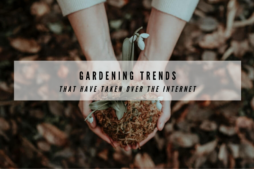With the recent climate crisis taking over the news, it’s easy to feel powerless to help save our planet. There are, however, several easy, sustainable house features and lifestyle changes you could implement today to ensure you are making a smaller impact on the environment. With 88% of people in the UK claiming to feel a personal responsibility to help the environment, you wouldn’t be alone[i]. Choosing to live an eco-friendly lifestyle can seem a bit daunting, but it is actually a lot easier than you think. Even the most minor adjustments can significantly impact the environment, save you money, and benefit your health.
1/3 of people became more eco-friendly over lockdown[ii], doing easy things like recycling, turning lights off, and conserving water. So, if you’re looking for easy ways to join them and start saving the planet every single day, we’ve got you covered with a bunch of great sustainable house features and ideas.
What is sustainability?
Introducing sustainability at home and being eco-friendly means doing as little harm as possible to the environment in every aspect of your life. By choosing unharmful products, companies and services, eco-friendly people protect and improve the planet rather than harm it. If any single part of the process – including company policies, how they make their products and deliver them, and how they carry out other services – harms the planet in some way, it is not eco-friendly.
Why is sustainability important?
Taking the steps to an environmentally sustainable life is more important now than ever before. According to the World Meteorological Organisation’s 2019 climate report, we are one degree Celsius above pre-industrial levels[iii]. If we don’t implement urgent changes, the risk to the planet and human life is high. The climate crisis is dire, and choosing to be less harmful to the environment in your day-to-day life will help you play your part in reducing the drastic numbers.
Playing your part can also:
- Produce less waste
- Save energy
- Save money
- Make you feel healthier
How to introduce sustainability at home
Now you understand what eco-friendly means and how important it is to try and help conserve the environment through your everyday decisions, but how exactly can you go about it in your home? Here are the best tips to help you start running an eco-friendly house:
1) Renewable Energy
Renewable energy sources, like the sun or the wind, are perfect alternatives to getting your electricity from a grid run by fossil fuels. Unfortunately, 89% of global carbon emissions come from fossil fuels[iv], so opting for a renewable source can have a massive impact on your carbon footprint.
2) Environmentally Friendly Heating Sources
Gas run central heating releases carbon monoxide, a poisonous gas that badly affects the environment. Just like electricity, there are many more sustainable ways of keeping your home warm, like installing smart meters, insulating properly, and installing underfloor heating.


3) Sustainable Cleaning Products
Many popular cleaning products contain chemicals that harm the environment, including laundry detergents, dishwasher tablets, and multi-purpose cleaner sprays. Opt for products that have no synthetic ingredients, like detergents, preservatives, or foaming agents, and look for those made with sustainably acquired ingredients that pose no threat to the environment.
4) Energy Efficient Light Bulbs
Although energy-efficient light bulbs have got a bit of a bad reputation since their invention in the 1970s, the technology is ever-changing. No longer slow to light up a room or too dim to see properly, energy-efficient bulbs are the perfect eco-friendly way to light your house and save you some money on the energy bills.
5) Start Recycling
Recycling reduces the amount of waste sent to a landfill, which reduces the number of greenhouse gases released into the environment. When the debris in a landfill begins to decompose and rot, it releases methane and carbon dioxide, the worst offenders for global warming. By choosing to recycle plastic, paper, cardboard, metal, and glass, you can help reduce the amount of waste that poisons the atmosphere on a landfill.
Want to learn more? Read our piece on plastic waste here.
6) Choose Furniture Wisely
When purchasing new furniture, try to look for pieces that use recycled wood and fabric to support eco-friendly production. You’ll still be getting brand new furniture, but it will have been made from materials that would have been thrown onto a landfill, meaning you have helped to reduce methane production.
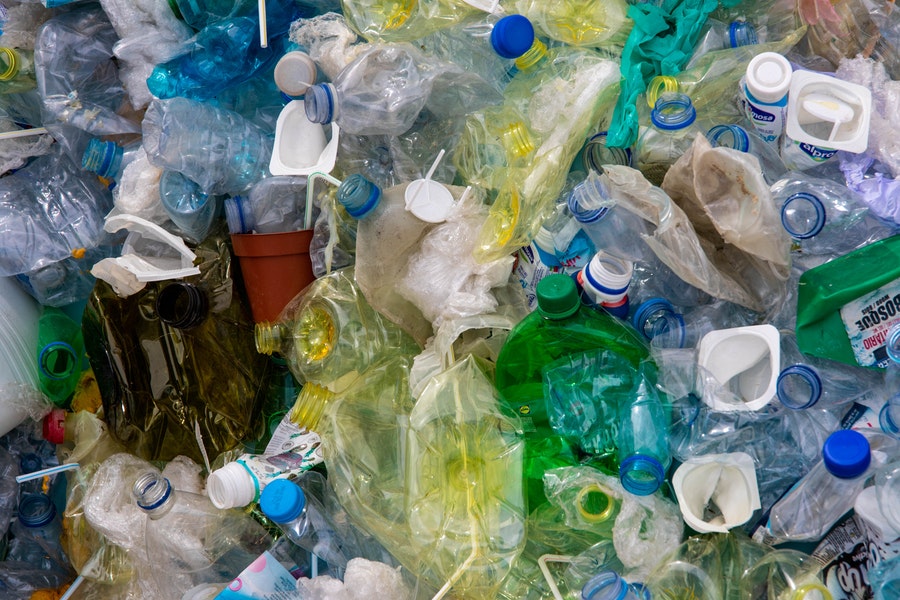
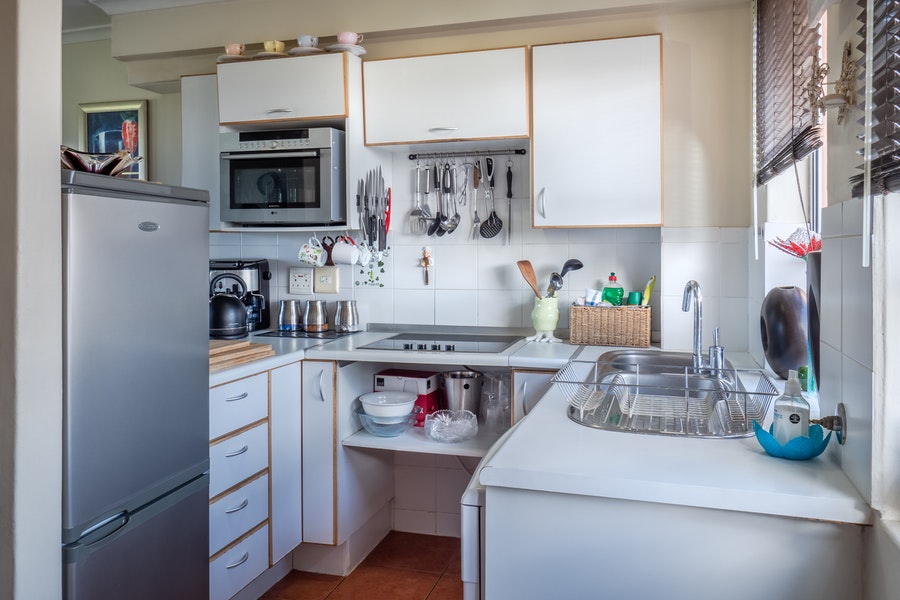
7) Eco-Friendly, Sustainable Appliances
Investing in eco-friendly appliances doesn’t have to be as expensive as you may think, and they will actually do the job better than regular devices due to the reduced need for everyday use. Also, switching to eco-friendly appliances, even if the ones we own work well, can save money in the long run.
8) Unplug Appliances
Even in standby, devices will still be consuming electricity – appliances left in standby are responsible for 9-16% of the energy used in homes[v]. So when you have finished with an electrical gadget, make sure that you turn it off at the wall and encourage the rest of your family to do the same. Also, ensure that you switch lights off when rooms are no longer in use.
Sustainability in the garden
Living an eco-friendly lifestyle isn’t limited just to what you buy and how you run your house. Even the way you treat your garden and the products you put in it can impact the environment. Here are the best ways to ensure sustainability in the garden.
1) Grow Your Own Crops
Cut down on food miles by growing fruit, vegetables and herbs in your back garden. Growing your own produce is quite simple once you’ve got stuck in, and it will taste so much better knowing where it came from and that you had a small hand in helping it grow. Plus, gardening is a very healthy hobby!
2) Start A Compost Heap
Although you might think you’re doing good, buying compost can actually be quite harmful to the environment. If it contains peat (partially decayed organic matter or vegetation), you’ve impacted the environment before you even take it home. Curb the costs and start your own compost heap – recycling garden and food waste will create a rich, nutritious mulch that will help your plants and crops thrive.
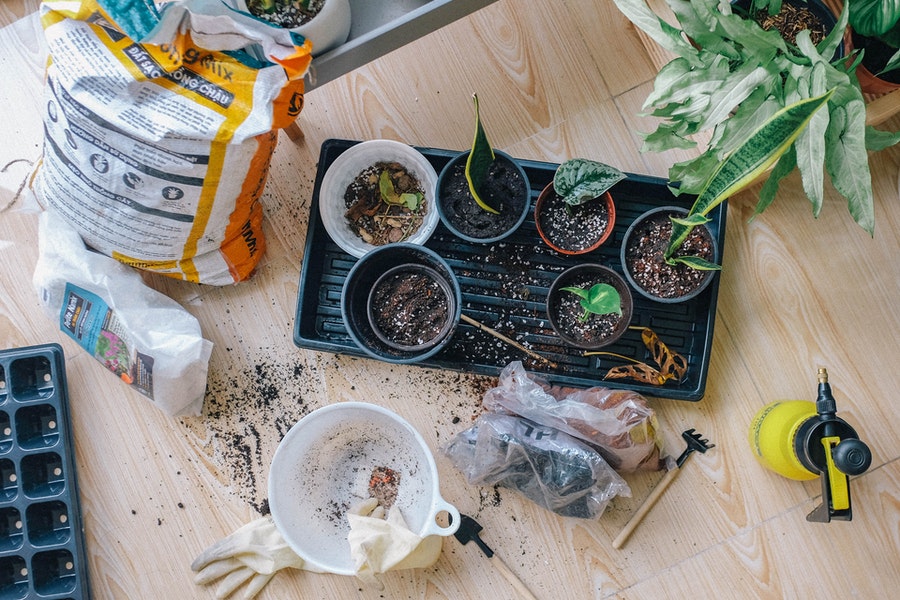
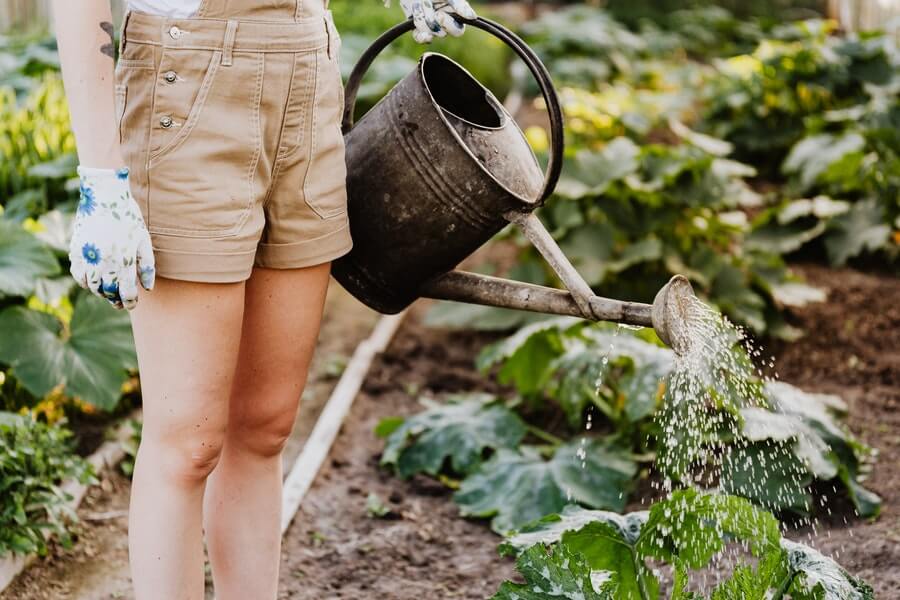
3) Use Organic Gardening Products
Reduce the chance of harming your soil or beneficial insects with unnecessary chemicals by choosing organic products to feed and treat your plants. You can get organic alternatives to almost any products your garden will need; just make sure that the bottles they come in are 100% recyclable.
4) Purchase Sustainable Furniture
Choosing eco-friendly furniture is just as important outside as it is inside. Buying sustainable outdoor wooden furniture will support environmentally friendly manufacturing and help reduce the release of greenhouse gases.
5) Encourage Wildlife
Give animals a safe place to live, feed, and breed by optimizing your garden to draw them in. For example, Planting easy to maintain wildflowers and native trees that change per season is a great way to bring in bees and butterflies. Likewise, putting up homes, like bird boxes and hedgehog shelters, will encourage more animals into your garden.
Find out why bees are so important by reading this guide.
6) Collect Rain Water
Water is a resource to be used sparingly, as it is precious to the local ecosystem, and wasting it could be destructive. To preserve water, when nurturing your garden, try to reduce sprinkler use by collecting rainwater and watering your plants and crops with this instead. You can find rain barrels cheaply, but tubs or buckets left outside can do the same job.

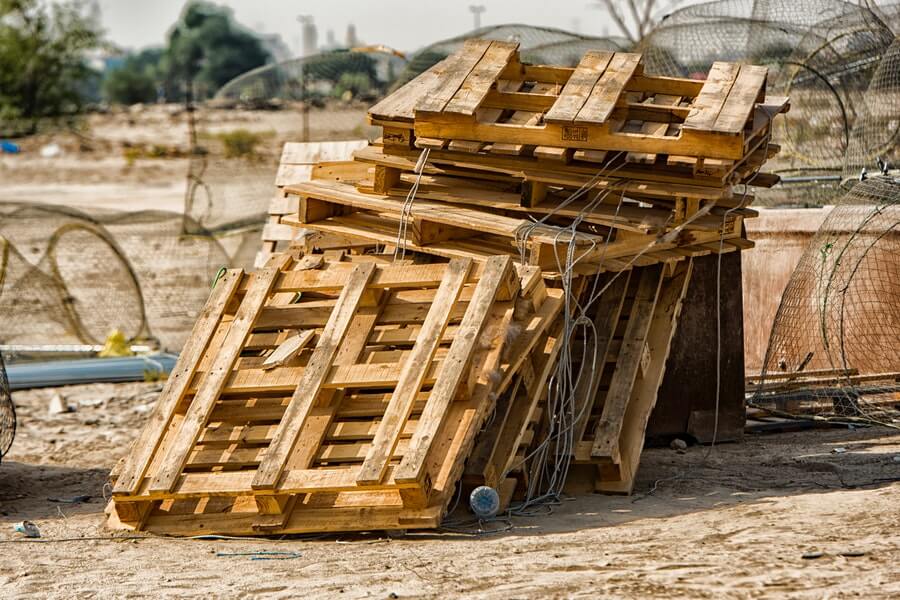
7) Use Local Materials
One of the best ways to go eco-friendly is to support local businesses because this lessens the number of road miles the products have to travel to get to you. For example, if you’re landscaping your garden, search for small businesses near you that can provide the materials you require. Not only will this have less of an impact on the environment, but it will also make your garden look more natural and established. If you want to build some furniture, look for shops nearby who are giving away wooden pallets.
8) Make Your Own Fertilizer
Avoid wasting money on readymade fertilizers – which are often made of environmentally harmful chemicals anyway – and start making your own. You can give the weeds some purpose by leaving nettles in a bucket of water for a few days and using the liquid to feed your plants. Homemade fertilizer will also attract beneficial insects into your garden.
Our environmental responsibilities
With the recent climate crisis verging on critical, it is the responsibility of everyone to start taking steps to tackle global warming. Choosing to live an eco-friendly lifestyle is one of the best ways to go about this and, as you can see, one of the easiest. With a few more intelligent choices, you can play an active part in reducing your carbon footprint, lessening our global emissions, and conserving the planet for everyone to enjoy for years to come.
Do you have any of your own tips for an eco-friendlier home? Let us know in the comments below.
Sources
[i] https://www.kbbreview.com/38556/topstory/nine-out-of-10-people-in-uk-believe-sustainability-is-vital/
[ii] https://metro.co.uk/2020/09/23/third-households-become-more-eco-friendly-since-lockdown-13314158/
[iii] https://public.wmo.int/en/media/press-release/global-climate-2015-2019-climate-change-accelerates
[iv] https://www.clientearth.org/latest/latest-updates/stories/fossil-fuels-and-climate-change-the-facts/#:~:text=The%20Intergovernmental%20Panel%20on%20Climate,from%20fossil%20fuels%20and%20industry.
[v] https://blog.loop.homes/the-cost-of-leaving-appliances-in-standby-mode
Ryan Jenkins is a professional gardener and has been working in the gardening industry for over 25 years. This has allowed Ryan to accumulate a vast wealth of gardening knowledge which he shares on the Sefton Meadows blog.

